Genoa
To the Diet:
The war on Milan, as you know, is going fairly well. Their capital city has just been taken thanks to the efforts of Otto von Kassel, and now the people who once dared to attempt conquest on our lands have been reduced to two cities isolated from each other. Today, I aimed to reduce that number to one.
News had reached me of another war in the Italian Front opening up with the treachery of Venice. I, who had long warned the Diet of Venetian intentions, was somewhat distracted by this news, probably more than I should have been. This caused me to be looking ahead to the upcoming takeover of their possessions, when I should have been taking things one at a time. As a result, I did not realize how evenly matched we were with the Genoan garrison.
The interesting thing about this battle was that Chancellor Sigismund ordered me to assault the city without any siege equipment or engines whatsoever. However, he explained in his letter to me that a spy had been placed inside the city, which would cause even more chaos for the Milanese since all gates would be simultaneously opened.
The Milanese apparently agreed, and we found the walls abandoned.
I figured that this was a mixed blessing as the Milanese would probably be massing in the city square. The best way to defeat this would be to surround them and attack from all streets leading into the square, but in order to do this a good position must first be established so that the Milanese do not disrupt your plans. I therefore ordered all units into the city at a run. We would split up later.
It is a good thing I did, for the spearmen found the heaviest cavalry the Milanese had to offer (their leader's bodyguard) charging their position. Luckily, our men were massed, so I can imagine that Count Catelano had a nasty shock when he rounded the corner.
He, along with most of his bodyguard, quickly perished thanks to our spears. However, about ten horsemen survived, riding back to the safety of the city square.
The next attack on our position was slightly more determined.
It was repulsed with heavy losses, but the Milanese continued to cede ground with a fight. All in all, it threw my plan of surrounding and defeating them in the square into the fire. This would be a nasty, brutal, street-by-street fight. Their count's death apparently did nothing to break the Milanese's spirits; in fact, I think it buoyed them to fight harder. We must be careful about killing future commanders early on in the battle.
I finally followed through with a modified battle plan - a two-way attack. The infantry would continue with the main push to the city square, while the cavalry would be detached and provide the final hammer blow. It reminded me of the ancienct Alexandrian tactics of the phalanx that pinned, and the Companions that shattered. Perhaps this effect would come back into style after today's battle.
The plan was put into good effect, and eventually our infantry hacked their way to the city square where the Milanese still fought like wildcats. Evidently the situation that played out in their capital city would not happen here.
"Oh, well," I thought, "That's why they invented cavalry."
But then, good Electors, something had happened that did not go to plan. Whoever was commanding the remnants of the Genoan garrison (if it was anyone) detached some units of his own to attack the cavalry's position. Mostly they were the men who had survived the initial assaults on the gate that we had just taken, back at the start of the fighting. There was a good mixture of spearmen and cavalry, deadly in compact spaces, but they were far under-strength.
Captain Ludwig, my close friend and second-in-command, seemed to notice my hesitation and chipped in with his opinion, always welcome in the past:
"Mein Kaiser, order us forward! We can break this rabble!" A few other men cheered. They were gearing for a fight, having missed out on the main bloody push by the infantry.
"Very well, charge! Smash them!"
I will never forget what happened next, for it was a mistake that ranks up there with allowing Pope Gregory to push me around all those years ago. I saw the looks on my men's faces (those that did not have visors covering their faces), grinning, ready for anything. I saw them eagerly spurring their horses forward, and I heard the thunder of hundreds of hoofbeats.
I saw the charge stop dead against a green wall. I saw a pileup of men and horses, all wearing Imperial colors. I saw the men lucky enough to be on the edges of the street (where they faced little opposition and prepared to take the spearmen from the side) get torn apart by the remaining Milanese cavalry, including the ten men of the escort that had lost their leader so long ago.
Desperate, I ordered my own escort forward hoping to break the spears. It worked to a point. For every inch of ground we made more good men fell. Finally, when we had met up with the infantry, as was our original plan, only two horsemen were still up. The men, shocked, ordered me to the back. Some routed. Once I was in a safe spot and still recovering from the shock of what happened (as well as futilely trying to rally a regiment that had routed), I glanced over at who else had survived that doomed charge. Amazingly, it was Captain Ludwig, who had proposed the move in the first place. He looked sick to his stomach, bent over in the saddle. I did not need to chastize him about what had just happened.
Eventually, good Electors, the city was taken but I stress that it was not easy. The infantry had to make due on their own, continuing to push even after they had pused all the way to this point, since most of our cavalry littered a side street.
It didn't make matters easier that the last Milanese still refused to give up, even in the face of tremendous odds.
When the final man had fallen, there was no cheering. Only a collective sigh of relief. We reluctantly plundered the city, bringing over 5,000 florins into the Imperial treasury. It also made us sick to execute the prisoners after the Milanese Duke, all the way in Dijon, refused to pay the ransom. These warriors deserved a better death.
Good Electors, let this serve as a lesson to all of us. I may not admire Dietrich von Saxony's childbearing skills or his politics, but he is apparently the only one who knows how to use cavalry in a siege assault. The shattered remnants of my escort are living proof of that.
Heinrich, Kaiser of the Holy Roman Empire, reporting from Genoa.








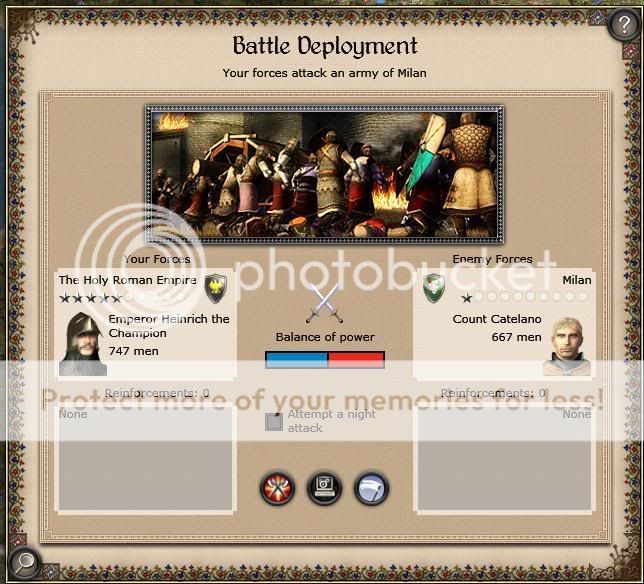


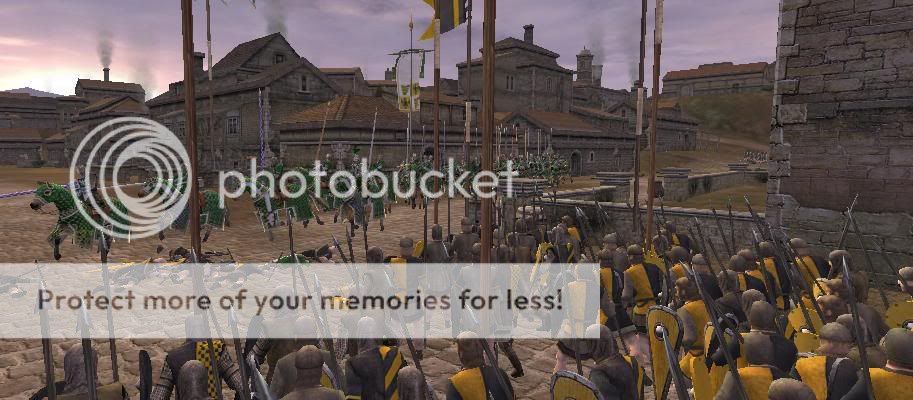
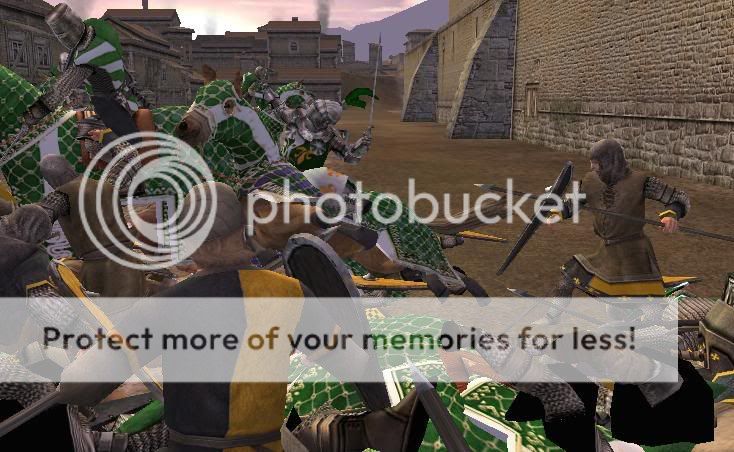
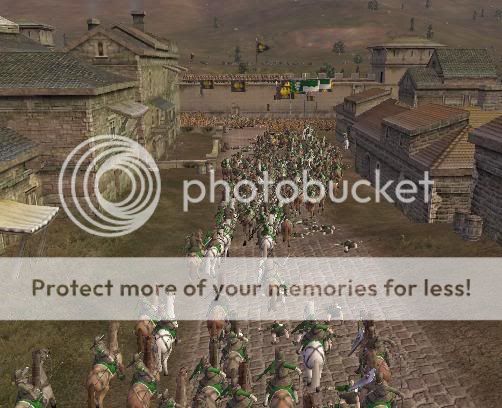

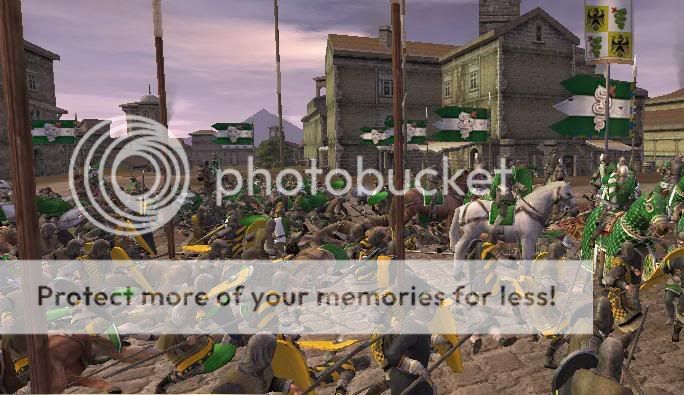
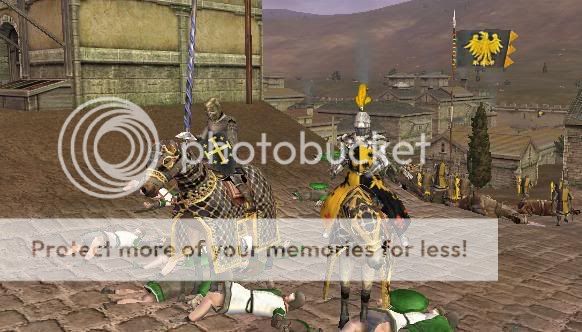


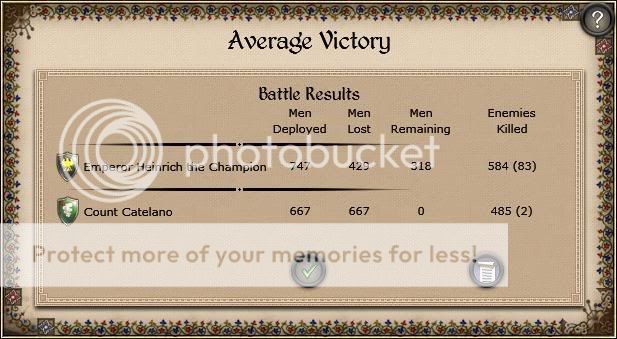



 Reply With Quote
Reply With Quote
Bookmarks